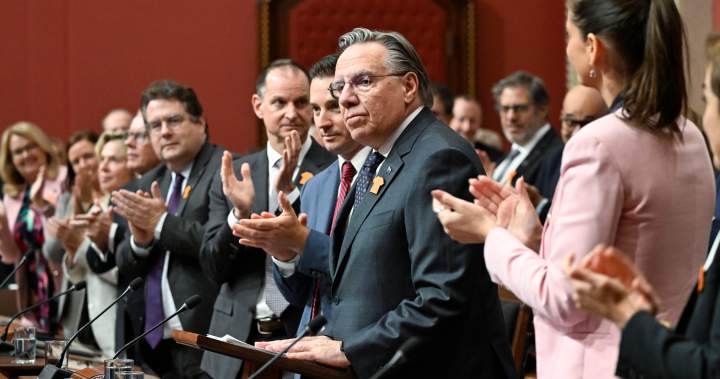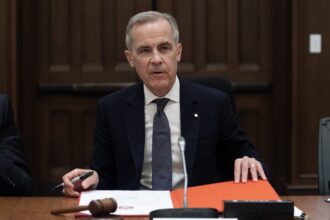In a watershed moment for Quebec’s economic trajectory, Premier François Legault presented his government’s ambitious blueprint for provincial growth amid mounting global economic headwinds. Speaking before a packed legislature in Quebec City on Tuesday, Legault outlined a comprehensive strategy centered on innovation, manufacturing resilience, and natural resource development designed to position Quebec as a North American economic powerhouse.
“The future of Quebec depends on our ability to increase our wealth,” Legault declared, emphasizing that economic prosperity remains the fundamental pillar supporting social services, healthcare, and education initiatives across the province. “Without a strong economy, we cannot fund the services Quebecers deserve.”
The premier’s vision arrives at a critical juncture as international markets grapple with persistent inflation, supply chain disruptions, and geopolitical tensions reshaping global trade patterns. Legault pointedly acknowledged these challenges while framing them as opportunities for Quebec to assert greater economic sovereignty.
Central to the plan is a renewed focus on manufacturing excellence, with particular emphasis on sectors where Quebec already demonstrates competitive advantages. The strategy calls for substantial investments in aerospace, electric vehicle battery production, and critical minerals extraction – industries the government identifies as having transformative potential for the provincial economy.
“Our abundance of clean hydroelectric power gives us a significant competitive advantage in attracting businesses focused on sustainability,” Legault noted, referencing recent major investments from battery manufacturers and technology firms seeking carbon-neutral production environments.
The economic roadmap also addresses Quebec’s productivity challenges, which have historically lagged behind other Canadian provinces. Government analysis indicates Quebec workers produce approximately 18 percent less economic output per hour than their Ontario counterparts – a gap Legault characterized as “unsustainable.”
To address this disparity, the plan introduces enhanced tax incentives for business automation, expanded worker training programs, and streamlined regulatory processes intended to accelerate innovation adoption. These measures, according to Finance Ministry projections, could potentially close the productivity gap by half within eight years.
Economic experts offered mixed reactions to Legault’s vision. “The premier correctly identifies Quebec’s structural economic challenges,” noted Dr. Marie Bouchard, economics professor at Université de Montréal. “However, implementing such an ambitious agenda requires addressing fundamental issues like labor shortages and demographic decline that remain inadequately addressed.”
Opposition parties quickly criticized the plan as insufficiently bold. Liberal economy critic Frédéric Beauchemin characterized it as “recycled ideas packaged as innovation,” while Québec Solidaire co-spokesperson Gabriel Nadeau-Dubois questioned whether the benefits would reach ordinary citizens.
“We’ve heard grand economic visions before,” Nadeau-Dubois remarked. “The question isn’t whether Quebec can generate more wealth, but whether that wealth will be distributed fairly or concentrated among corporate interests.”
Beyond domestic concerns, Legault’s strategy acknowledges the shifting landscape of international trade relations. With traditional markets becoming increasingly uncertain, the plan emphasizes developing stronger economic partnerships within North America while cautiously diversifying export destinations.
The plan arrives as Quebec’s economy shows mixed signals. While unemployment remains at historic lows, economic growth has slowed considerably, with forecasts projecting just 1.1 percent expansion for 2024 – considerably below the national average.
Business groups largely welcomed the initiative. “This vision aligns with what the business community has been advocating,” said Michel Leblanc, president of the Chamber of Commerce of Metropolitan Montreal. “The focus on productivity and innovation addresses the root challenges facing our economy.”
As global economic uncertainty continues to mount, Quebec’s bold economic recalibration represents both opportunity and risk. The success of Legault’s vision will ultimately hinge on whether his government can translate ambitious rhetoric into tangible economic outcomes that benefit Quebecers across all sectors of society.
Will Quebec’s economic reinvention serve as a model for regions navigating the complexities of 21st-century economic transformation, or will implementation challenges derail these ambitious aspirations?










